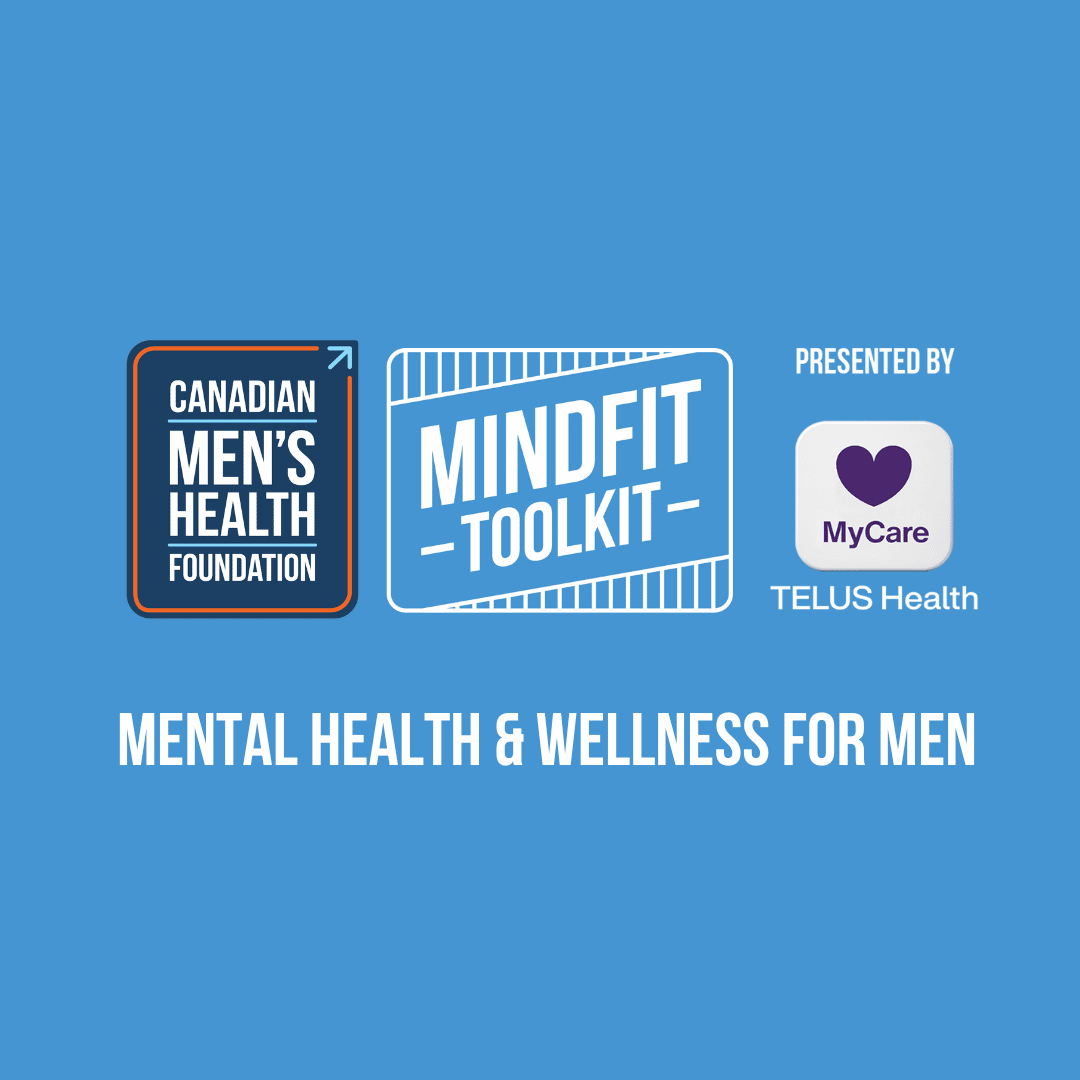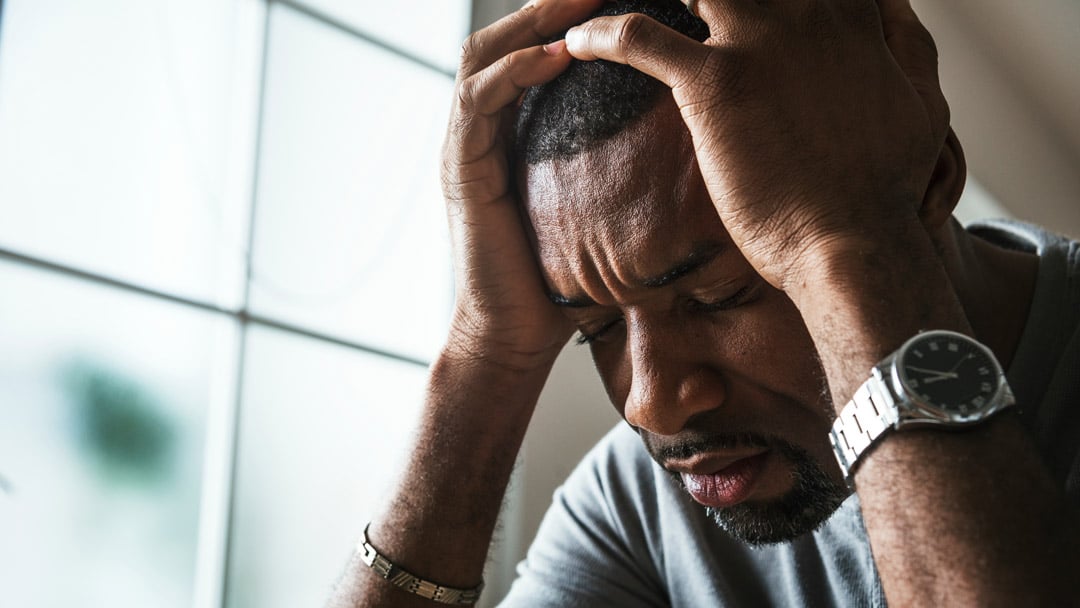If you come home after a long day at work and feel like you need to have a beer or glass of wine to relax and de-stress, your “caveman brain” might be taking over.
Way back in the day, this part of the brain helped prehistoric people survive super-stressful experiences—sabre-toothed tiger attacks, say, or mammoth hunts—by releasing adrenaline and other chemicals that prepared cavemen to take action and helped them recover.
Mammoth hunts aren’t part of our lives anymore, but your caveman brain still has the same extreme response to all stressful situations, including low-level chronic stress, which is very common today.
From day-to-day work and parenting pressures to managing your finances and health, constant low-level stress confuses your caveman brain. “Okay, I need to take action!” it shouts, but adrenaline-fuelled life-or-death action isn’t needed for most forms of modern stress. Doing your taxes isn’t going to kill you—although it may feel like it sometimes—and dealing with a surly toddler is likely less stressful than running from a sabre-toothed tiger.
That’s why many people today feel stuck with their stress and can’t figure out how to get rid of it. That’s also why many people drink alcohol: to cope with the stresses our caveman brain can’t handle.
Alcohol and stress relief
I work as one of the registered counsellors providing online appointments at TELUS Health MyCare™. As part of the booking process, we ask clients to include a short summary of their reasons for booking. Anxiety, stress, depression, and relationship conflicts are often mentioned, but alcohol? It’s rarely there, although it is an extremely common struggle.
When I start talking with a client, alcohol often shows up as a coping mechanism . It’s no secret that alcohol provides a feeling of relief at first. It’s one of the things that makes drinking appealing. Anyone who’s had a drink can relate to the “aahhhh” feeling that comes with sipping beer, wine, or cocktails. Alcohol is a biochemical depressant that triggers a feeling of relief.
However, that feeling is usually short-lived. Research shows that drinking too much (which is more than 3 drinks in one sitting for men) ultimately causes or worsens the problems people think it solves: anxiety, stress, depression, and relationship conflicts.
Does alcohol reduce stress and anxiety?
When the initial effects of alcohol subside, most people actually start to feel increased anxiety and stress. When you consume alcohol, it initially has a sedative effect, and that makes you feel good. But after the initial feel-good sedative effects wear off (usually when you’re already asleep), the brain tries to get the body back into balance by pumping adrenaline into your system as the alcohol leaves your system (3 AM seems to be a common wake-up time). This process causes anxiety, hangovers, and poor sleep.
In short, alcohol is bad news when it comes to handling stress and anxiety. The good news: there are plenty of easy ways to relax that don’t involve drinking too much or escaping from a prehistoric predator.
Better ways to cope without alcohol

Dealing with chronic low-level stressors on a day-to-day basis can sometimes create an overwhelming feeling of uncertainty like things are spiralling out of control. Instead of drinking alcohol to help ease the discomfort of uncertainty, do small, sustainable, and achievable actions on a daily basis to help you feel more in control.
Here are some ways to cope with stress by making small changes to your day-to-day life:
Create a daily routine
Structure and routine give us a feeling of control that counters the stresses of day-to-day life. This can be as easy as getting up at the same time each day, giving yourself some time to eat breakfast, and making sure you take regular breaks and meals at work. When you have lunch, leave your work area and eat it elsewhere, and at the end of the workday, shift gears by shutting off tools and electronics.
Meanwhile, a brief walk after work can replace the de-stressing effect of the commute home and help you shift from work to personal life or family life. On that note…
Go outside for at least 20 minutes every day
A 20-minute walk outside each day or a half-hour of backyard playtime with the kids and/or dog can strengthen your mental and physical health. It doesn’t have to be vigorous exercise—by getting active regularly, you’re sending messages to your brain’s reward centre that says, “Hey, that felt good, let’s do it again!”
By sending that message over and over again, the urge to get active will become automatic. Here’s the kicker: if you’re feeling a bit off, you will be less motivated to get active, but the benefits will be even greater.
Connect with people
The pandemic has caused plenty of ‘Zoom fatigue,’ social isolation, and loneliness. That’s why it’s so important to explore different ways to start connecting with real live human beings again.
Pick up the phone and connect with old friends. Remember that all of us have been living through a pandemic for over two years now. You’ll likely be pleasantly surprised that your friends are as keen on connecting again as you are.
Or go out and get a coffee. Then, when the counter staff or barista is making your coffee, try to start a conversation. “Hi, how are you?” is all it takes to connect to a community of people larger than ourselves.
Get a good sleep
Regular bedtimes and wake-up times are essential to getting the seven to nine hours of nightly sleep you need to stay healthy. Sleep and stress are closely linked, so it’s important to make sure you’re getting enough shuteye every night.
We often go, go, go, go all day long. When you check your phone for messages at the end of the day and then put it on the bedside table, you make it impossible for your brain to relax because you’re still processing when your brain hits the pillow. So it’s important to turn off phones and other electronic devices to give yourself time to unwind. The exceptions: sleep apps or relaxation music that prepare you for sleep.
Laugh it off
Like drinking alcohol, listening to a funny podcast or watching a YouTube video will release the feel-good dopamine hormone. But unlike drinking alcohol, having a good laugh will have longer-lasting benefits without the negative consequences.
Be mindful
By their very nature, stress and anxiety are focused on worries and doubts connected to the future. Mindfulness, on the other hand, is about being present in the moment.
Deep breathing and meditation are highly effective ways to achieve mindfulness, yet people often think they require too much time and special skills. But they don’t! A breathing or visual meditation exercise can reduce your stress in under two minutes. This activates your brain’s reward centre system, so it becomes more appealing and beneficial every time you do it.
That said, mindfulness doesn’t have to involve breathing or meditation. It can be anything that brings you into the moment: reading a book, listening to an audiobook, painting, drawing, or building model aircraft. Anything that slows life down. For men, one of the most popular in-home activities is cooking. Choose a recipe, and spend half an hour in the kitchen focusing on each step. You’ll send stress packing and get a tasty dinner to boot!
If you can’t find mammoth steaks at the supermarket, a nice piece of salmon will do just fine.
What are some of your favourite stress-busting activities that don’t involve drinking alcohol? Share with the rest of the guys here in the comments below!
Not Feeling Like Yourself?
Tackle chronic stress, anxiety and depression with MindFit Toolkit. Access free mental health tools designed for men.



Don’t Change Much seems to show up in my email every month or so and offers a little light just when I need it.
I deal with what I suppose you could call low grade depression. It’s a functioning depression but it colours my world a grey.
Along comes Don’t Change Much and it never fails to lift my spirits. I usually keep the email until a new one arrives and reread it on occasion when I feel things going black.
Thanks a bunch for what you do.
Oh wow, thanks so much! We love to hear this kind of feedback. You are very welcome.
~Canadian Men’s Health Foundation team member